In 2022, the Biden administration condemned Iran for advancing its nuclear program, cracking down on protesters, exporting drones to Russia, and supporting militant proxies across the Middle East. It worked with European and Middle East countries to confront the multipronged threat posed by Tehran. “We reunited with allies and partners in Europe and around the world to reverse our isolation; now it is Iran that is isolated,” President Joe Biden wrote in July.
For the first several months of 2022, the Biden administration was focused on reviving the 2015 nuclear deal. As diplomacy stalled, tensions mounted as Iran ramped up uranium enrichment and installed more advanced centrifuges. The United States blamed Iran for making extraneous demands in the negotiations. By the fall, Washington’s priorities had shifted. “There are these protests in Iran. And there is this new decision by Iran to participate in a war in Europe by transferring drones to Russia,” Special Envoy for Iran Robert Malley said in October. “So that's what we're focused on because nothing's happening on the nuclear deal.” The following are excerpts of remarks by U.S. officials arranged by individual in reverse chronological order.
- President Joe Biden
- Secretary of State Antony Blinken
- Secretary of the Treasury Janet Yellen
- National Security Advisor Jake Sullivan
- Special Envoy for Iran Robert Malley
- CIA Director Bill Burns
- Director of National Intelligence Avril Haines
- FBI Director Christopher Wray
- Secretary of Homeland Security Alejandro Mayorkas
- National Counterterrorism Director Christine Abizaid
- Gen. Michael Kurilla (Commander of Central Command)
President Joe Biden
On the Nuclear Program
In a joint statement with French President Emmanuel Macron on December 1, 2022: “Iran can never develop or acquire a nuclear weapon. France and the United States continue to work with other international partners to address Iran’s nuclear escalation, its insufficient cooperation with the IAEA, including on serious and outstanding issues relating to Iran’s legal obligations under its Non-Proliferation Treaty Safeguards Agreement, and its destabilizing activities in the Middle East, most urgently its transfers of missiles and drones, including to non-state actors.
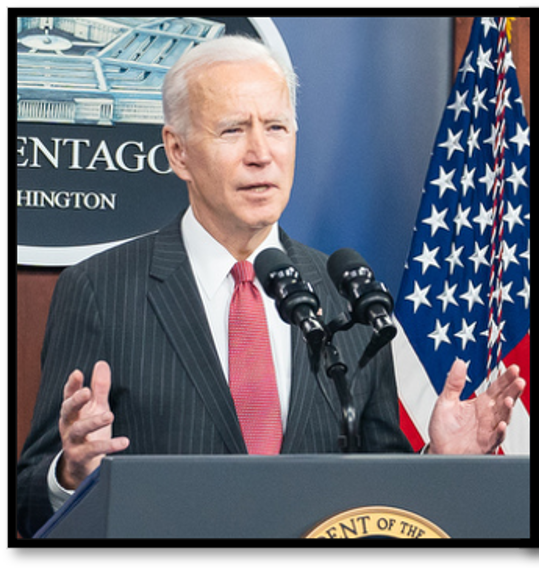
In an address to the U.N. General Assembly on September 21, 2022: “While the United States is prepared for a mutual return to the Joint Comprehensive Plan of Action if Iran steps up to its obligations, the United States is clear: We will not allow Iran to acquire a nuclear weapon.
“I continue to believe that diplomacy is the best way to achieve this outcome. The nonproliferation regime is one of the greatest successes of this institution. We cannot let the world now slide backwards, nor can we turn a blind eye to the erosion of human rights."
In an op-ed in The Washington Post on July 9, 2022: “After my predecessor reneged on a nuclear deal that was working, Iran had passed a law mandating the rapid acceleration of its nuclear program. Then, when the last administration sought to condemn Iran for this action in the U.N. Security Council, the United States found itself isolated and alone.
“With respect to Iran, we reunited with allies and partners in Europe and around the world to reverse our isolation; now it is Iran that is isolated until it returns to the nuclear deal my predecessor abandoned with no plan for what might replace it. Last month, more than 30 countries joined us to condemn Iran’s lack of cooperation with the International Atomic Energy Agency on its past nuclear activities. My administration will continue to increase diplomatic and economic pressure until Iran is ready to return to compliance with the 2015 nuclear deal, as I remain prepared to do.”
On the Protests
In a joint statement with French President Emmanuel Macron on December 1, 2022: “The Presidents also express their respect for the Iranian people, in particular women and youth, who are bravely protesting to gain the freedom to exercise their human rights and fundamental freedoms, which Iran itself has subscribed to and is violating.”
In a statement on October 3, 2022: “I remain gravely concerned about reports of the intensifying violent crackdown on peaceful protestors in Iran, including students and women, who are demanding their equal rights and basic human dignity. They are calling for just and universal principles, which underpin the UN Charter and Universal Declaration of Human Rights. For decades, Iran’s regime has denied fundamental freedoms to its people and suppressed the aspirations of successive generations through intimidation, coercion, and violence. The United States stands with Iranian women and all the citizens of Iran who are inspiring the world with their bravery.
“The United States is making it easier for Iranians to access the Internet, including through facilitating greater access to secure, outside platforms and services. The United States is also holding accountable Iranian officials and entities, such as the Morality Police, that are responsible for employing violence to suppress civil society. This week, the United States will be imposing further costs on perpetrators of violence against peaceful protestors. We will continue holding Iranian officials accountable and supporting the rights of Iranians to protest freely.”
On Iranian Weapons Transfers to Russia
In a joint statement with French President Emmanuel Macron on December 1, 2022: “[Missile and drone] transfers can threaten key Gulf partners and stability and security in the region, contravene international law, and now contribute to Russia’s war of aggression against Ukraine. France and the United States will work with partners to enhance cooperation regarding enforcement of relevant UN Security Council resolutions and countering these activities. They will undertake joint efforts aimed at further strengthening the international framework constraining the proliferation of Iranian missile and unmanned aerial vehicle technologies in the region and beyond and in enhancing practical efforts to counter this proliferation.”
Secretary of State Antony Blinken
On the Nuclear Program
During an interview with NBC on November 30, 2022: “When there was an agreement, the so-called JCPOA that put Iran’s nuclear program into a box, the decision to pull out of that agreement allowed the program to get out of the box. And now what we’re seeing is, as you said, Iran continuing to take steps to make that program ever more dangerous, and it is something that we are very concerned about – not just us, but many allies and partners around the world, starting with our European partners. So we’ve made clear to Iran in a variety of ways that if they continue to take steps to advance their program, we will also have to take steps to oppose that and to deal with that.”
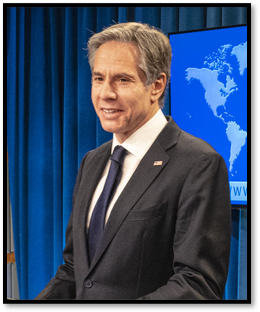
During a joint press availability with Korean Foreign Minister Park Jin on June 13, 2022: “It is fundamentally up to Iran to decide whether or not it wishes to re-engage in [the JCPOA] because the work in terms of re-engaging in that agreement has for the most part been completed. But what we’ve seen is Iran continuing to try to inject extraneous issues into the conversation, into the negotiation, that simply have no place there. So they have to decide, and decide very quickly, if they wish to proceed with what has been negotiated and which could be completed quickly if Iran chose to do so.
“Separately but relatedly, of course, are Iran’s obligations under the nonproliferation regime to its commitments to the IAEA [International Atomic Energy Agency], including commitments that it has dodged for a long period of time, to the point where it was important for the IAEA to express, through the resolution of the Board of Governors, its deep concern with Iran’s failure to comply. Now Iran has taken steps in response to the IAEA that make things even more challenging, including a return to the JCPOA as it, for example, pulls cameras out of places where the IAEA had them placed for monitoring.
“One of the great benefits of the JCPOA was the most comprehensive and complete monitoring and inspections regime of any arms control agreement yet put in place. If the Iranians are dismantling that at the same time, then I think that makes the possibilities of return to compliance even more remote. So fundamentally, it’s up to Iran, and we’ll see quickly, I would imagine, what it proposes to do by its actions. And the actions that we’ve seen are not encouraging.”
In remarks on January 24, 2022: “We have to pick up the pieces of the disastrous decision to pull out of the agreement. Any agreement has imperfections; any agreement, because it’s the product of negotiation, is going to have elements in it that people don’t like and in an ideal world would prefer to avoid. For example, of course part of the other side of the agreement was lifting sanctions on Iran, the sanctions that had been put in place and vigorously enforced first by the Bush administration and then by the Obama administration, in part to get the Iranians to the table to negotiate. But mostly the sanctions that were lifted involved lifting restrictions on countries and banks that prohibited them from sending to Iran the proceeds of Iranian oil sales to those countries.
“In effect, when those were lifted, the agreement was paid for with Iran’s own money. And sure, you would prefer that they not get a dollar. But when you’re negotiating, the other side has to get something, and that was what it got.
“So now, to fast-forward to today, we are looking at whether it’s possible to return to mutual compliance with this agreement, with the JCPOA, because it remains in our estimation, of all of the imperfect choices we have, still the best way to try to put Iran’s nuclear program back in a box and to allow us to at the same time deal with all of the other excesses in Iranian policy because nothing in the agreement in any way prohibits us from going after, sanctioning, dealing with the other things that Iran does that we profoundly object to.
“We’re very, very close to the end of the runway on the ability to get back into this agreement because what’s happened is, Iran has been moving forward on its program. Two things. It is getting to the point where its breakout time, the time it would take to produce fissile material for a bomb, is getting down to a matter of a few weeks, and that in and of itself is something that should not be sustained over time. That’s not the kind of world that we want to live in.
“Second, it continues to acquire knowledge and build up expertise such that at some point in the relatively near future, even going back to all of the restrictions of the JCPOA will not recapture sufficient nonproliferation benefits, because of everything Iran has learned that would allow it to break out, even with the JCPOA restrictions, at a much faster rate. We're getting very close to that point. I can't tell you as we gather this evening whether we'll get back to mutual compliance. I think that'll be decided in the next few weeks, because again, given what Iran is doing, we can't allow this to go on. Our allies and partners in Europe feel the same way.
“I'd say interestingly, the Russians, who are part of this process, also have a sense of urgency. And if we're not able to do that, we have been immersed in working out what we will do to deal with this problem by other means.”
During a press availability on January 21, 2022: “If a deal is not reached in the next few weeks, Iran’s ongoing nuclear advances will make it impossible to return to the JCPOA. But right now, there’s still a window, a brief one, to bring those talks to a successful conclusion and address the remaining concerns of all sides. We are now on a clearer path in terms of understanding each other’s concerns, each other’s positions.”
During a joint press availability with German Foreign Minister Annalena Baerbock on January 20, 2022: “We’re now in the midst of the eighth round of talks in Vienna, and as both of us have said, we have reached what is an urgent point. The longer this goes on – which is why it can’t go on much longer – the more Iran will continue to advance its nuclear program, a program that was stopped by the JCPOA, by the nuclear deal, but that was resumed by Iran when we pulled out of it, and the shorter and shorter the so-called breakout time will become – the time it would take Iran to produce enough fissile material for a nuclear weapon.
“There is real urgency, and this is really now a matter of weeks where we determine whether or not we can return to mutual compliance with the agreement. My own assessment, talking to all of our colleagues, is that returning to mutual compliance remains possible. We’ve seen some modest progress in the last couple of weeks in the talks, but we are not where we need to be. And if we don’t get there very soon, we will have to take a different course. And yes, indeed, we discussed exactly that today with our allies and partners. We did that in the Quad with Germany, with France, with the United Kingdom, and we discussed together the steps that we would take together if Iran refuses to return to compliance with the agreement on terms that are acceptable to all of us.”
On the Protests
During an interview with NBC on November 30, 2022: “Our focus every day and the world’s focus is what’s happening in the streets of Iran – the extraordinary courage of women in particular who have been standing up, speaking up, speaking out for their basic rights. And we’ve seen that since the killing of Mahsa Amini some months ago.
“We’ve been working to make sure that, to the best of our ability, those who’ve been involved in trying to repress the ability of the Iranian people and women to speak up and speak out, we’ve been sanctioning that. We’ve also been trying to make sure that Iranians have the ability to be able to communicate with one another and stay connected to the outside world, including through the provision of technology.
“Sometimes these things blend together, but for the most part we’re trying to do whatever we can do to make clear that we support what Iranians are asking for, demanding in the streets, which is to be heard, to be able to make their views known peacefully, and not to have this terrible repression that we’re seeing.”
During an interview with NBC on November 30, 2022: “[This is] fundamentally about the Iranian people, their own aspirations, their own desires, their own needs for their futures, for their country. That’s what will determine what happens and where this goes.”
In a tweet on September 19, 2022: “Mahsa Amini should be alive today. Instead, the United States and the Iranian people mourn her. We call on the Iranian government to end its systemic persecution of women and to allow peaceful protests.”
Secretary of the Treasury Janet Yellen

On the Protests
In a press release on September 22, 2022: “Mahsa Amini was a courageous woman whose death in Morality Police custody was yet another act of brutality by the Iranian regime’s security forces against its own people.
“We condemn this unconscionable act in the strongest terms and call on the Iranian government to end its violence against women and its ongoing violent crackdown on free expression and assembly. Today’s action to sanction Iran’s Morality Police and senior Iranian security officials responsible for this oppression demonstrates the Biden-Harris Administration’s clear commitment to stand up for human rights, and the rights of women, in Iran and globally.”
National Security Advisor Jake Sullivan
On the Protests
In a statement on November 14, 2022: “We are deeply concerned about reports from Iran of mass arrests, sham trials, and now a death sentence for protesters voicing legitimate demands against a government that systematically denies basic dignity and freedom to its people. The reported death sentence comes at the same time as the political prisoner Hossein Ronaghi was reportedly transferred from Evin prison to a hospital in Tehran after reports of torture.
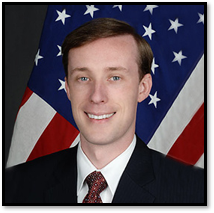
“The eyes of the world are on Iran. The human rights abuses inflicted by its government must not go without consequence. The hundreds of protestors already killed at the hands of Iranian state authorities deserve justice. The torture and mistreatment of political prisoners like Mr. Ronaghi must cease.
“The United States, standing with our partners and allies around the world, will continue to pursue accountability for those responsible for these abuses through sanctions and other means. We welcome the new sanctions adopted today by the European Union and the United Kingdom against 29 Iranian individuals and three entities involved in the violent crackdown on protestors. The United States stands staunchly with the Iranian people and their demands.”
In a tweet on September 16, 2022: “We are deeply concerned by the death of 22-year-old Mahsa Amini, who was reportedly beaten in custody by Iran’s morality police. Her death is unforgivable. We will continue to hold Iranian officials accountable for such human right abuses. #MahsaAmini”
Special Envoy for Iran Robert Malley
On the Nuclear Program
During an interview with Foreign Policy on November 30, 2022: “[How close Iran is to a bomb] is a tough question to answer because there's how close they are to having a fissile material enriched at weapons grade—and that is, as we've said, only a few weeks. We're very close and that's a result of very dangerous choices that the Iranian regime has made. They're very close to having enough fissile material for a bomb—weaponizing that takes longer but it's much too close for comfort. We need to do what we can to stop their progress, through diplomacy if possible, and for them to walk back their advances so that we are in a much better place than we are today.

“We basically had a deal. And then at the last minute, after having said that they broadly agreed with the outlines, Iran came up with this demand—which has periodically surfaced on their part—which was that they wanted the International Atomic Energy Agency (IAEA) to close off certain investigations into the unexplained presence of uranium particles in Iran. It is the IAEA’s fundamental job to be able to say that all nuclear material is under safeguards. Because Iran is not responding to the questions, the IAEA can't make that determination. And we said there's no linkage between the JCPOA and this probe. It has to go on independently without any political pressure. We cannot accept anything that's going to put pressure on the independent agency. Iran has one way of completing that investigation, which is to answer the questions the IAEA has put to them.
“We're in a very different situation today, where we're working in lockstep with the U.K., with France, with Germany, with so many countries around the world. There is a vast majority of countries today—and not just Western countries—that understand that pressure has to be put on Iran to stop its nuclear advances.
“This is not a case where we impose maximum pressure with impossible demands on Iran. There was a clear deal on the table. Iran could have had the lifting of some of the sanctions, and therefore have a very different path.”
During an interview with the Carnegie Endowment for International Peace on October 31, 2022: “First, we make no apology for having tried and still trying to do everything we can to prevent Iran from acquiring a nuclear weapon. Again, a preference for diplomacy, if that can work with tools of pressure, sanctions in particular, but also keeping all options on the table in case diplomacy were to fail. But I do want to address one of the points that some of our critics have made, which is that because we're still trying to pursue a nuclear deal, we've left other elements of our policy on the shelf. We have not self-deterred because of the pursuit of a diplomatic agreement.
“People say, ‘Why don't you walk away from the negotiations? It would give you more ability to do other things.’ We've been doing those other things. We haven't waited to see what happens to the nuclear deal any more than Iran has waited. Iran has continued its destabilizing activities. Iran has continued its support for violent groups and terrorist groups across the region. Iran has continued to develop its ballistic missiles, and to repress its people, and to plot against Americans. If they can do that, even as they claim to be trying to negotiate a nuclear deal, we can do the same. We can take action against those destabilizing activities. We can mobilize countries around the globe. We could counter Iran's activities, even as we are seeking to reach a diplomatic solution on the nuclear front. But there's been no movement on the negotiations now for two months.
“Several times we came very close. And each time we came close, Iran came up with one new extraneous demand that derailed the talks. We do believe that we were very close. The Europeans certainly believed we were close. The European Union had put a plan on the table that everyone else had agreed to. Iran at the last minute, once again, came back with a demand which was extraneous to the JCPOA and which none of the other participants, including the Russians [and] the Chinese, would have said was a legitimate demand. That's where we were in late August early September. So, when you say it's in abeyance, it's really not our focus right now. It's not on our agenda, because nothing has changed. We're not going to focus on something that is inert when other things are happening.
“There are these protests in Iran. And there is this new decision by Iran to participate in a war in Europe by transferring drones to Russia. So that's what we're focused on because nothing's happening on the nuclear deal. We're not going to spend our time our time on it. If nothing's going to happen, we're going to spend our time where we can be useful. That doesn't mean that we have given up on diplomacy. It doesn't mean that we don't believe that diplomacy is the best way to address this.
“The last from Secretary Blinken, he said, 'There's no forward movement. Iranians continue to try to inject extraneous unrelated issues in the conversation.' The interviewer may have made an editorial comment in pressing the Secretary to basically say that it's dead. Now he hasn't done that. The President hasn't done it.
“It's critical to understand that the Trump administration tried to say, “Let's get out of the deal. Let's just use pressure to see whether we can make Iran succumb to our pressure and come back to the table and get a better nuclear deal.” It didn't work. Several years on, we saw Iran with a galloping nuclear program. The experiments of the Trump administration failed, and we are facing today the reality [that] Iran is only a few weeks away from having enough highly enriched uranium for a bomb.”
During an interview with MSNBC on February 4, 2022: “All the advances that Iran has made has bolstered the case for getting back into the deal because we’ve lived the alternative for the last several years, we've seen what happens to Iran's nuclear program. If we're not in the deal, Iran is unconstrained in its nuclear advances, and that's why we see that as of today, they are only a few weeks away from enough enriched uranium for a bomb.
“Our experts say as of today—and that's the position of President Biden, of Secretary Blinken and all the rest of the team—it is still well worth getting back into the deal. There's much still that can be salvaged, not for much longer, but as of today, our view is getting back into the deal will be profoundly in our national security interests, profoundly in our interests to avoid seeing Iran advance towards a bomb, and avoiding more tension in the Middle East.
“What we've said very openly to Iran is that that won't be the case much longer, which is why we say we only have a few more weeks to go at the current pace of Iran's nuclear advances for it to get back into the deal. Or unfortunately, we're all going to face a very different reality.”
“[The deal is] the best way we have to put Iran's nuclear program back in a box and to make sure that we can put that problem to the side, as we do with so many other issues that Iran presents to us. If we don't reach a deal soon, we'll have to think of other ways to address Iran's nuclear program.
“Our belief is not that words are going to stop Iran's nuclear program. It’s that the JCPOA proved that it stopped it and it can stop it again. We’ve lived the alternative. This is an experiment that we lived for three years without a deal. We saw what happened to Iran's nuclear program, and the maximum pressure campaign did the opposite of stopping Iran's nuclear program. Iran's nuclear program accelerated.
“Our priority is to get back into the deal if Iran is prepared to do so, and we're prepared to do our share and lift those sanctions that were reimposed by President Trump and that are inconsistent with the deal. If Iran chooses a different path, of course, we're prepared and we'll use the tools that we have to put pressure on Iran to make sure that they can't acquire a bomb, which is a commitment that President Biden has made, keeping the door open for diplomacy, but using other tools at our disposal to make sure that Iran can't move towards acquiring a bomb. That is our policy, we’ll work with all our partners to achieve it.
“It is true in our system, we cannot bind future presidents. That's a decision that whoever comes into the Oval Office in the future will have to make. What we do say is President Biden has made clear that he will stay in compliance with the deal, the U.S. will stay in compliance with the deal, as long as Iran is in compliance. He would not be expending this political capital on trying to get back into the deal if the point was to then leave it. Now, let’s get back into the deal as soon as possible, let’s show that it brings benefits both to the United States and to Iran, and then let’s try to build on it to reach other understandings which will make it even stronger, make it have more bipartisan support here, more regional support in the Middle East. We’ve never said that the JCPOA is the end of diplomacy.
“We’re not going to tell Iran that once we get into the deal, no president can tear it up. A future president could do that. We don't intend to if Iran is consistent in compliance with its obligations, and our hope is that we could show that this is a deal that is in our mutual benefit, which is the best way to ensure that it is sustainable and to build on it and to strengthen it.”
“We have different views about what it means for the U.S. to be back in compliance. They want us to lift all of the sanctions that President Trump imposed, and we say some of them he imposed because of Iran's behavior that has nothing to do with the nuclear deal. And so those we intend to maintain, even though a majority we would lift.”
On the Protests
During an interview with Foreign Policy on November 30, 2022: “Organizing international efforts—whether it's at the U.N., at the U.N. Human Rights Council—we will soon try to get Iran kicked off of the Commission on the Status of Women because it's an aberration. It's a complete anomaly that Iran would be on the Commission that’s supposed to defend the rights of women when they're oppressing them.
“The Iranian regime is more isolated now than it's been in a very long time. And that's because we, together with many others, have made sure that the truth of what's happening in Iran is visible for all to see.
“What's clear is that these [protests] are extraordinary. It's an extraordinary page of Iran's history that's being written right now. The courage, the determination, the persistence, the creativity of Iranians, particularly Iranian women and girls—they're writing this page of their history. We're not going to be the authors. We can be there to express support for the fundamental rights of Iranians. But this page will be written by Iranians themselves, and they won't be written in Washington or London or anywhere around the globe other than in Iran.
“There's two lessons [from the U.S. response to the 2009 Green Movement]. First, a lesson of humility. The United States is not going to decide the course of other nations, whether it is Iran, whether it's the countries in the Arab world. We have to be humble and not think that we're the ones who could or should determine the trajectory of Iran’s popular unrest, or whatever breaks out in those countries.
“On the other hand, I think we have to learn another lesson, which is that the truer we are to our values, the more consistent we are with our values, the better. We shouldn't be saying one thing and thinking another. In the case of Iran, we believe that fundamental human rights should be respected by the regime, and that the Iranian people have the right to the same freedoms, the same dignity, that people around the world are entitled to. We should speak loudly about it—we should not pull our punches—saying what we think and making clear that we are watching what the Iranian regime is doing and that we intend—together with others in the international community—to hold them to account. I think [the lesson] is one of being truthful, but also being humble.”
During an interview with the Carnegie Endowment for International Peace on October 31, 2022: “First, to make clear our support for the fundamental rights of the Iranian people. Again, as I said, that's a global approach that we have to human rights. And we've done that vocally from day one. You've heard from the President, you heard from the Secretary of State, you heard from the National Security Adviser, all the senior officials in administration, voicing their support for the fundamental rights of the Iranian people.
“Number two is to make sure that this is a multilateral international effort. You're seeing countries in the Global South, like Chile, are saying the same thing about support for the fundamental rights of the Iranian people, and the condemnation of the regime violence against them.
“Number three is to make sure that the world knows and sees the actions of this Iranian regime, [its] use of violence against peaceful protesters, and the brutality that the protesters have suffered. We are, through our sanctions, putting a spotlight on what's happening in Iran. Through actions in multilateral fora—whether it's at the United Nations, with the Human Rights Commission, whether it's in other places like the online Freedom Coalition—we are going to make sure that people are watching and know what the Iranian regime is doing, and they're held accountable.
“And then finally is to make sure that the sanctions that we have imposed on Iran historically over decades do not interfere with the ability of the Iranian people to communicate with each other, or with the outside world—so the steps that we've taken to make sure the restrictions on internet access that the Iranian regime is trying to impose are not compounded by our policy.
“And you'll see that we have now imposed a series of sanctions against perpetrators of human rights violations in Iran, not just [at] the very top but also mid-level officials who may have thought that they could escape the limelight. They can be named and shamed, and they know that the world is watching.
“The U.S. role can be very ambitious. It also has to be very realistic. There's only so much that we can do and that we should do because we are not the center stage of what's happening in Iran. It is led by Iranians. It's a grassroots popular movement. The Iranian people will determine their future. You'll see more sanctions. You're going to see more efforts to try to make sure that the internet is as unencumbered as possible.
“You'll see more steps at international fora to show the world and show Iran that we're holding their regime to account. Because this is not a matter of the West against Iran.
“[The] Iranian regime will do everything to paint this as a U.S.-inspired or an Israeli-inspired movement. That's absurd on its face. There's nothing that the United States could do that would convince 15- year-old girls to challenge the authorities at great risk to their lives and security. Nothing that we could do that would convince Iranian women and others to come out into the streets in the face of great peril to their own lives. That kind of anger, that kind of passion, can only have been triggered by the policies of the regime. It's their policies that have generated that kind of anger and that kind of movement. The same officials who are claiming that we’re behind it are the officials that said that Mahsa Amini died of natural causes, the same who are denying, in the face of mounting and irrefutable evidence to the contrary, that they have transferred drones to Russia.
“Our policy is not one of interfering, to try to foment regime change. It's one of supporting the basic rights of Iranian people. We have to expect the Iranian regime to try to paint those protesters as being lackeys of the U.S. and Israel. The Iranian people see right through that. I don't think this is a playbook that's going to work. We know others who have tried to use it in the Middle East, and it doesn't work because when this level of fury is being generated by the policies of the regime, you cannot convince anyone that it's being in any way micromanaged by the U.S.”
On Iranian Weapons Transfers to Russia
During an interview with Foreign Policy on November 30, 2022: “It says a lot about the state of Russia's military that they need to turn to Iran of all places for support. And it says a lot about Iran, this Iranian regime, that it will be prepared to cross that line and to interfere in conflict on the European continent, helping the aggressor in an invasion against Ukraine. I think that speaks volumes.
“We have already taken steps to make it harder for Iran to transfer those drones and other military equipment. We're working in partnership with others around the world to sanction and to take other steps to make sure that it is as hard as possible for Iran to transfer those deadly weapons that are helping Russia kill and target civilians in Ukraine.
“We will sanction what we can, but this is a sanction that doesn't hurt the Iranian people. These are sanctions against military transfers to Russia. We are trying to be as effective as we can—we are working with others to make sure that our sanctions against Russia and against Iran can minimize those transfers.”
During an interview with the Carnegie Endowment for International Peace on October 31, 2022: “We know that Iran has been transferring deadly drones to Russia. It's incontrovertible because the evidence is on the ground. The Ukrainians have recovered those drones, and they are Iranian-made drones. Iran has been training Russian operators. Those drones have been used to target civilians and civilian infrastructure. Iran—in the face of all of this evidence—keeps lying and denying that that's happening which shows that they are embarrassed, that they know that this is something that is isolating them internationally.
“They're now also helping Russia kill innocent Ukrainian civilians. Iran has made a very bad bet. You're seeing calls from across the globe saying this is simply outrageous, that Iran would be using those deadly drones, which they've already used to ill-effect in the region, now they're using it in a European theater.
“For a country that has claimed that it stands strongly in favor of the sovereignty of other countries—itself [having] been attacked by Iraq—I don't know how many people imagined that we'd see that day. If Iran thought that it could do that and hide it, well, they failed, and they'll continue to fail.”
On the Iranian Threat
During an interview with the Carnegie Endowment for International Peace on October 31, 2022: “Number one, we and Europe are completely on the same page when it comes to reacting to Iran's nuclear program, reacting to Iran's policy in Ukraine—Iran’s support for Russia's aggression in Ukraine—and standing together shoulder-to-shoulder and expressing support for the Iranian people at this time when they are confronting the violence of the regime. That's what we've done for the last 18-plus months. And I think we really have succeeded in restitching what is so crucial if we want to have a common front to push back against Iran's destabilizing activities, human rights violations, or nuclear program.
“Number two is to prevent Iran from acquiring a nuclear weapon. And this is not something that we're going to walk away from. The President made that clear commitment. We are using many tools. It's the view including of people who have very different ways of addressing Iran's nuclear program, including the Israeli government. They all say there is no long-term sustainable solution other than a diplomatic one. Diplomacy is the preferred way to try to resolve it and that's why, without apologies, we've been engaged in an effort to defend U.S. national security interests, because an Iran with a nuclear weapon would make the entire world unsafe. There are other tools—sanctions pressure, and yes, as the President has said, if all other means fail as a last resort, he would keep the military option very clearly on the table if that's what it would take to prevent Iran from acquiring nuclear weapons.
“Number three is pushing back against Iran's destabilizing activities in the region. Its proliferation of drones, ballistic missiles, its interference in other countries, its attacks against some of its neighbors. We have—together with our partners and allies and all of the agencies in our government—tried to make an effort to combat and counter those activities, whether it's through sanctions, through interdictions, through hardening the defenses of our allies and our own defenses and finding other ways. That's a very strong pillar of our policy in which we've made real advances.
“Number four, the President made clear not just about Iran, but about our global policy, which is to put human rights and the defense of human rights back at the center of our foreign policy. And we have done that when it comes to Iran since the outbreak of the protests in Iran. But that goes back earlier in terms of our denunciation of Iran's human rights violations and trying to get other countries around the globe to unite in defense of [the] Iranian people's basic human rights. It is not a perfect science. But in the case of Iran, I think we've been very strong.
“And, last but not least, is to try to make sure that we get the three remaining hostages in Iran back home and reunited with their families as soon as possible. Emad Shargi, Siamak Namazi, Murad Tahbaz—all three deserve to be home. They should never have been imprisoned. It's an outrageous practice that the Iranian government has had, which is to use these dual nationals as pawns.”
CIA Director Bill Burns
On the Nuclear Program
During an interview with NBC at the Aspen Security Forum on July 20, 2022: “There are at least two dimensions of Iran's nuclear program that are particularly concerning right now. The first is the amount of time it takes them to produce the fissile material, the highly enriched uranium you need for a single nuclear weapon. Under the terms of the JCPOA, the Comprehensive Nuclear Agreement, which the last administration pulled out of several years ago, that breakout time to produce that amount of fissile material was a little more than a year.
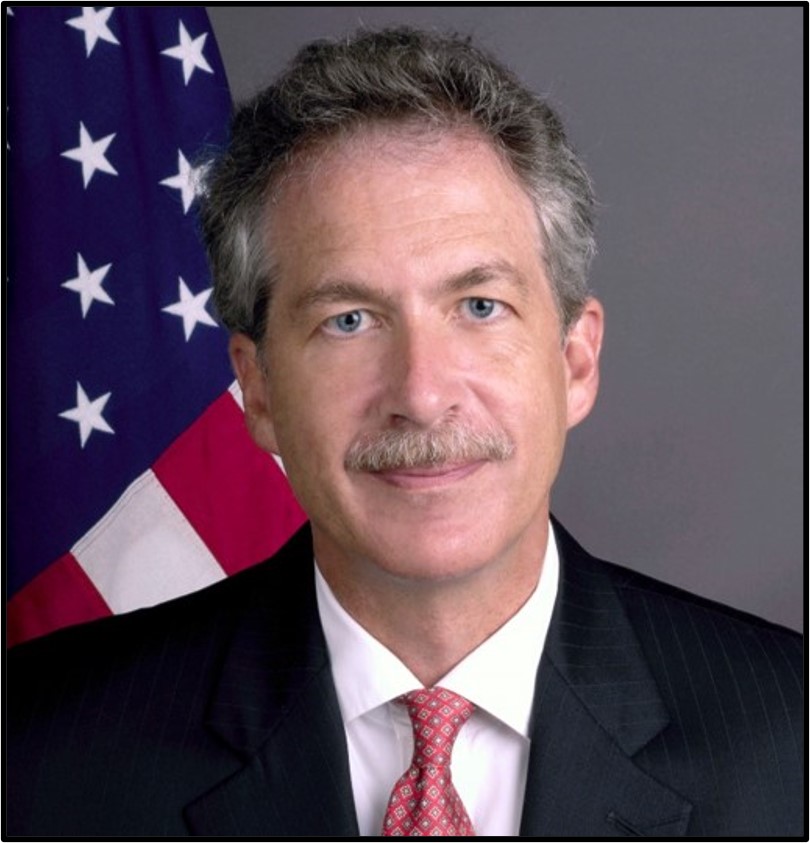
“Today, after the U.S. withdrawal from the JCPOA, and Iran moving away from its compliance with the agreement—enriching to 60 percent; resuming enrichment activities at Fordow, the nuclear site dug into a mountain in Iran; expanding the stockpile of enriched uranium that they have well beyond the constraints in the Comprehensive Nuclear Agreement; beginning to work again on advanced centrifuges, which speed up their ability to enrich to higher levels—for all those things. That's a concern because now that same breakout time can be measured not in a year plus but in weeks.
“The second dimension is how long it would take if the Iranians resumed an effort to build a weapon. Our best intelligence judgment is that the Iranians have not resumed the weaponization effort that they had underway until 2004 and then suspended, so that's something obviously we at CIA and across the U.S. intelligence community keep a very, very sharp focus on. But the trend lines are quite troubling.”
On the Protests
During an interview with PBS NewsHour on December 16, 2022: “What struck our analysts at CIA is both the duration of those protests, now almost three months on, and their scope, because they seem to cut across Iranian society, cut across ethnicities, socioeconomic groups.
“It is about a growing number of Iranians who are fed up, who are fed up with economic decay, with corruption, with the social restrictions that especially affect Iranian women. They are fed up with political oppression, fed up with the denial of basic human dignity.
“So, in the short term, I don't think the Iranian regime perceives an immediate threat to its grip. It still has some very practiced habits of repression and brutality that it's continuing to employ. In the long term, though, I think the reality is that this is an Iranian regime does not have good answers for what's on the minds of a very young population, 70 percent of which today is under the age of 30.
“And it's been a remarkable indication of both that frustration that I mentioned before and also the genuine courage of people out in the streets. And so this has gone on for just about three months now, and it can continue for some time.”
During an interview with CBS Evening News on Oct. 3, 2022: “I don’t think they’re isolated protests. And what’s striking at least to me and to our analysts here is the sweep of those protests. Now, these are incredibly brave people, and many incredibly brave young women. They’re fed up in a lot of ways. And they’re willing to take the risk of getting out and demonstrating because they’re fed up with economic decay, with corruption, with the social restrictions especially that Iranian women face, and with political repression as well.
“Now again, this is an autocratic system, the Iranian regime, which is very good at repressing people, and they’re quite ruthless now in putting down those kind of protests as well.
“The U.S. government has made very clear our support for the free flow of information and freedom of the internet. Without going into any details, I think the United States is very committed to that. We are going to continue to be strongly supportive as a government in the free flow of information.”
On Iranian Weapons Transfers to Russia
In an interview with PBS NewsHour on December 16, 2022: “Historically, there's a lot of mistrust between Russians and Iranians, but they need each other right now.
“And what's beginning to emerge is at least the beginnings of a full-fledged defense partnership between Russia and Iran, with the Iranians supplying drones to the Russians, which are killing Ukrainian civilians as we speak today, and the Russians beginning to look at ways in which, technologically or technically, they can support the Iranians, which poses real threats to Iran's own neighborhood, to many of our friends and partners in Iran's neighborhood as well.
“[The relationship is] already having an impact on the battlefield in Ukraine, again, costing the lives of a lot of innocent Ukrainians.
“And I think it can have an even more dangerous impact on the Middle East as well if it continues. So, it's something that we take very, very seriously.”
During an interview with NBC at the Aspen Security Forum on July 20, 2022: “I don't know if it's a greater threat [than the nuclear program], but it's certainly an increasingly significant threat as well. [Iran has] the biggest arsenal of missiles of anyone in the Middle East right now. And it’s a mark of the development of their armed drone system that you have the Russians now trying to acquire some as well.”
“The reality is that Russians and Iranians need each other right now. Both [are] sanctioned countries looking to break out of political isolation. They don't really trust each other in the sense that they're energy rivals and historical competitors.
“It's true that the Russians are reaching out to the Iranians to try to acquire armed drones, UAVs. It's important for us to remind ourselves, when we look at that prospect, that the purpose of those drones is to kill Ukrainian civilians in a brutal and unprovoked war of aggression. It's also important to remind ourselves that it's a reflection in some ways of the deficiencies of Russia's defense industry today, the difficulties they're having after significant losses so far in the war against Ukraine and replenishing their stocks as well.
“Both sides are going to look for ways in which they can help one another evade sanctions. Both sides are looking to demonstrate that they have options. I'm sure it's occurred to the Iranian leadership as they looked at President Biden's trip to the Middle East a week ago that they want to demonstrate they have options too. There are limits to the ways in which they're going to be able to help one another right now.”
Director of National Intelligence Avril Haines
On the Nuclear Program
During an interview with NBC at the Reagan National Defense Forum on December 3, 2022: “We don't have information to suggest that they've made a decision to move towards a nuclear weapon, but we continue to see them take moves.”
On the Protests
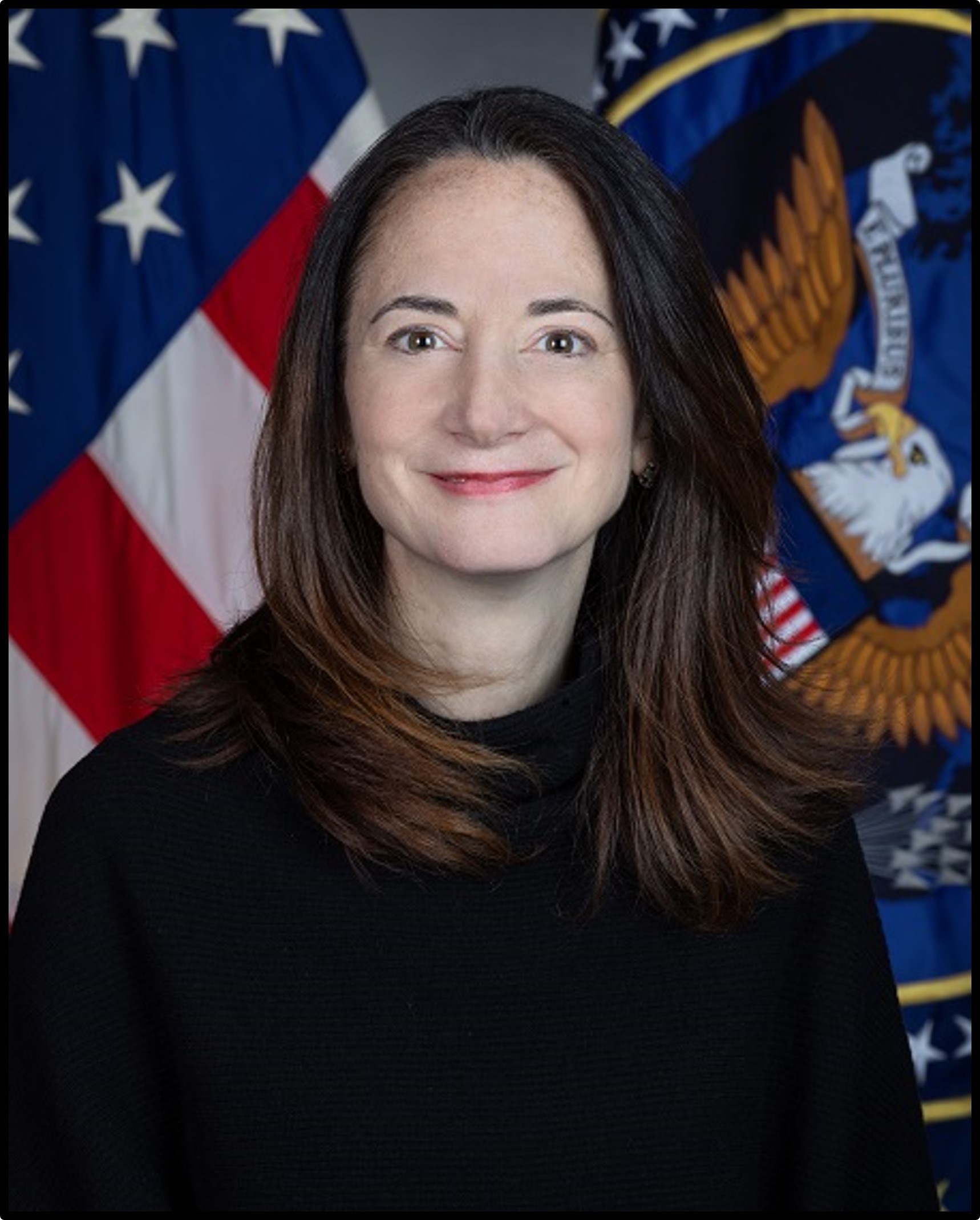
During an interview with NBC at the Reagan National Defense Forum on December 3, 2022: “We’re not seeing the regime perceive this as an imminent threat to their stability. They’re cracking down on what's happening. On the other hand, when we look at how this is developing, when we look at it combined with the economy, for example, which really is having extraordinary challenges right now—they hit in early November an all-time low for the rial, which was 370,000 to a dollar. We saw 50 percent inflation, 70 percent food inflation. They are really having challenges and even nationwide seeing sporadic closedowns of businesses and things like that.
“From our perspective, that’s one of those things that will lead to a greater risk of unrest and instability over time and depending on how it develops and when you combine it with the generational divide that we're seeing that are represented in the protests. We have yet to see how this ultimately evolves, but it is not something that we see right now as being an imminent threat to the regime and we see the regime continuing to crack down on this pretty violently and that they are posed to do more.”
On Iranian Weapons Transfers to Russia
During an interview with NBC at the Reagan National Defense Forum on December 3, 2022: “We’ve obviously seen [Iran] give [Russia] UAVs and the Iranian regime first denied it, then they said, ‘well these were given before the war.’ They had a variety of different excuses for it. We've also seen the Russians looking for other types of precision munitions from Iran and that will be very concerning in terms of their capacity, more generally.”
FBI Director Christopher Wray
On the Iranian Threat
In testimony to the Senate Committee on Homeland Security and Government Affairs on November 17, 2022: “Iran and its global proxies and partners, including Iraqi Shia militant groups, continue to attack and plot against the United States and our allies throughout the Middle East in response to U.S. pressure.
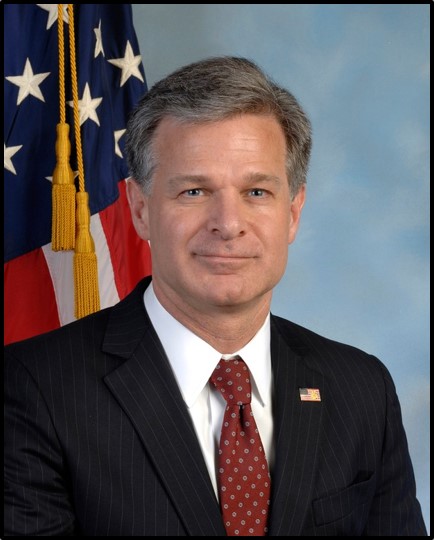
“Iran’s Islamic Revolutionary Guard Corps-Qods Force (“IRGC-QF”) continues to provide support to militant resistance groups and terrorist organizations. Iran also continues to support Lebanese Hizballah and other terrorist groups. Hizballah has sent operatives to build terrorist infrastructures worldwide. The arrests of individuals in the United States allegedly linked to Hizballah’s main overseas terrorist arm, and their intelligence collection and procurement efforts, demonstrate Hizballah’s interest in long-term contingency planning activities here in the Homeland. Hizballah Secretary-General Hassan Nasrallah also has threatened retaliation for the death of IRGC-QF Commander Qassem Soleimani.
“This threat was exemplified in 2022, when the Department charged an Iranian national and member of the IRGC, working on behalf of the Qods Force, with a plot to murder a former National Security Advisor.
“We see nations such as China, Russia, and Iran becoming more aggressive and more capable in their nefarious activity than ever before. These nations seek to undermine our core democratic, economic, and scientific institutions. They employ a growing range of tactics to advance their interests and to harm the United States. Defending American institutions and values against these threats is a national security imperative and a priority for the FBI.
“In recent years, we have seen a rise in efforts by authoritarian regimes to interfere with freedom of expression and punish dissidents abroad. These acts of repression cross national borders, often reaching into the United States. It’s important to note countries like China, Russia and Iran, stalk, intimidate, and harass certain people in the U.S. This is called transnational repression. It’s illegal and the FBI is investigating it.”
Secretary of Homeland Security Alejandro Mayorkas
On the Iranian Threat
In testimony to the Senate Committee on Homeland Security and Government Affairs on November 17, 2022: “We continue to see Iran and its partner, Lebanese Hezbollah, pose an enduring threat to the homeland, evidenced by Iran’s public statements threatening retaliation in the United States for Islamic Revolutionary Guard Corps Quds Force (IRGC-QF) Commander Qasem Soleimani’s death and historical arrests of IRGC and Hezbollah members plotting operations in the United States. In the past several years, U.S. law enforcement has arrested numerous individuals for spying on Iranian dissidents in the United States and for acting as agents of influence for the Iranian Government.
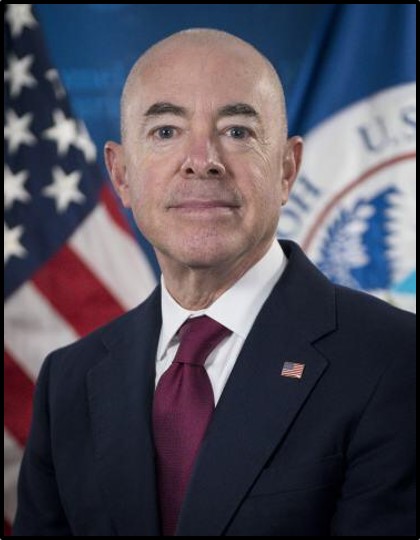
“In August, federal prosecutors unsealed charges against an IRGC member for plotting to assassinate a former US official. Given its capabilities, Iran could advance an attack plot targeted at the United States with little to no warning. DHS continues to work closely with other law enforcement agencies and the Intelligence Community to stay aware of ongoing threat streams and take preventative actions as appropriate.
“Our interconnectedness and the technology that enables it—the cyber ecosystem— exposes us to a dynamic and evolving threat environment, one that is not contained by borders or limited to centralized actors, one that impacts governments, the private sector, civil society, and every individual. As a result, cyber threats from foreign governments and transnational criminals remain among the most prominent threats facing our nation. Hostile nations like Russia, the PRC, Iran, and North Korea, as well as cybercriminals around the world, continually grow more sophisticated and create more adverse consequences.
“Iran has a robust cyber program that targets networks in nearly every sector, and conducts offensive cyber operations in the United States, Israel, Saudi Arabia, and via other regional adversaries. Iranian cyber-attacks recently caused severe harm to government networks in Albania, limiting access to essential services. These attacks include disruptive and destructive cyber-attacks such as website defacements and data deletion. Iranian cyber espionage is a high frequency, widespread threat, and Iran may choose to leverage its cyber access for disruptive or destructive attacks.
“The United States faces an evolving and increasingly complex threat from nation-state adversaries, including the PRC, Russia, Iran, and North Korea, each of which views the United States as a strategic adversary. These adversaries employ a combination of traditional and non-traditional intelligence tradecraft, predatory economic and cultural outreach, and cyber and traditional espionage to seek illicit access to U.S. critical infrastructure and steal sensitive information, technology, and industrial secrets. These governments—and a growing number of others who are learning from their tactics—conduct overt and covert influence campaigns spreading misinformation and disinformation to sow and exploit divisions in our society, undermine confidence in our democratic institutions, and weaken our alliances. In some cases, they surveil, harass, and otherwise seek to suppress perceived dissidents and regime opponents overseas, including those now living in the United States.
“We assess that for the foreseeable future, Iran probably will present an enduring counterintelligence threat to the homeland as it seeks to advance its goals in the Middle East. During the past several years, U.S. law enforcement has arrested numerous individuals for spying on Iranian dissidents in the United States and for acting as agents of influence for the Iranian government.
“The security and resilience of our nation’s election infrastructure is one of the highest priorities for DHS. As demonstrated in recent election cycles, we continue to face a wide range of threats targeting U.S. election infrastructure and voters by sophisticated, state-sponsored cyber threat actors, such as the PRC, Russia, and Iran. In many cases, the foreign threat actors who are attempting to breach our election systems are the very same ones who are conducting influence operations that seek to sow discord in our country. Their influence operations often utilize information obtained illicitly through cyber activity, or they make false or exaggerated claims of cybersecurity breaches. These foreign threat actors advance their own disinformation narratives about U.S. elections, as well as amplify existing domestic disinformation narratives. Protecting election infrastructure is a whole-of-government effort.”
National Counterterrorism Center Director Christine Abizaid
On the Iranian Threat
In testimony to the Senate Committee on Homeland Security and Government Affairs on November 17, 2022: “Iran continues to encourage and support plots against the United States at home and abroad, especially in the Middle East. Iran and Lebanese Hizballah have remained intent on retaliating for the death of Islamic Revolutionary Guard Corps-Qods Force (IRGC-QF) Commander Soleimani, with Iran plotting attacks against former U.S. officials.
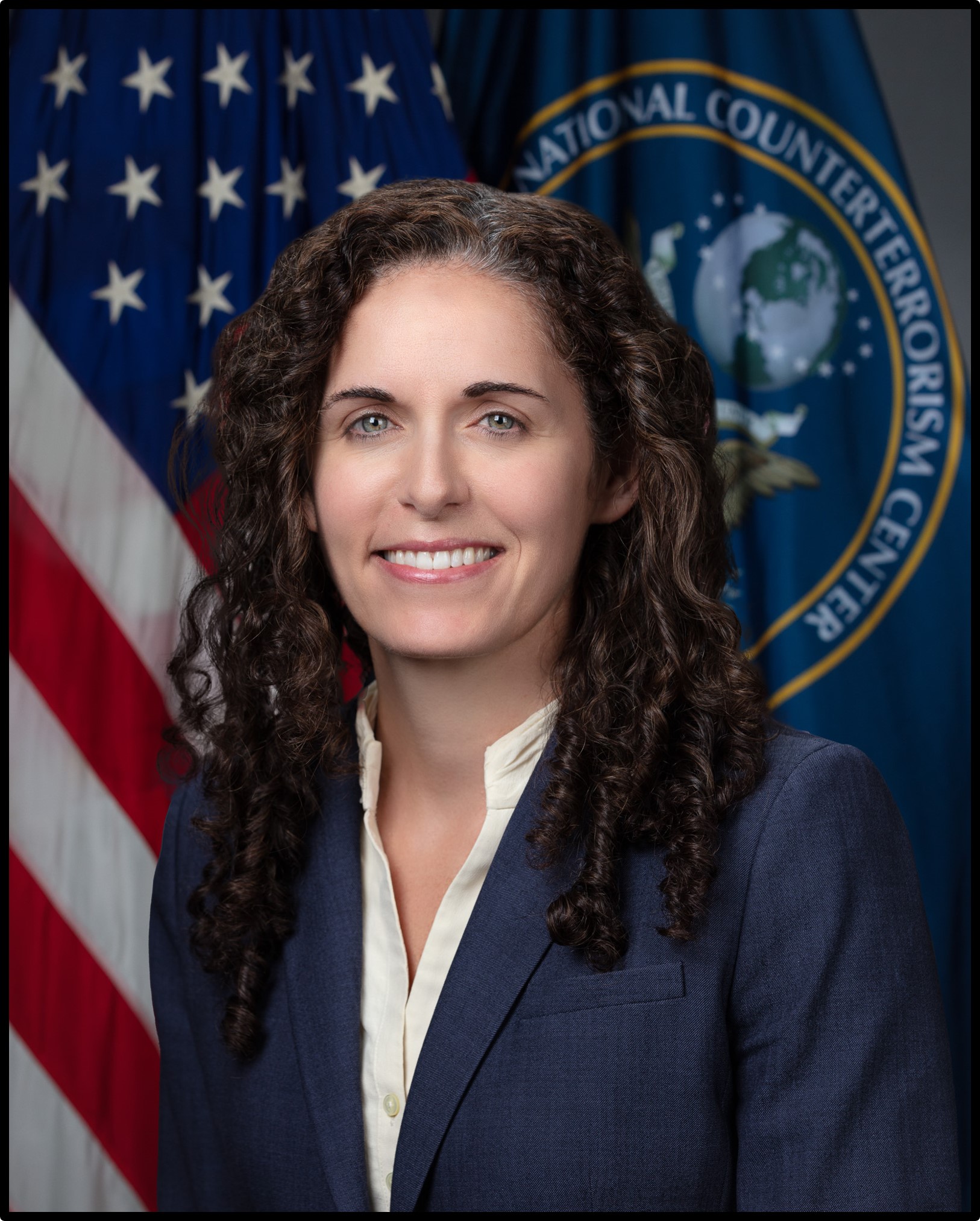
“Iran is pursuing a diverse campaign that employs legal, financial, and lethal action in pursuit of its revenge. Tehran has publicly threatened to conduct lethal operations including against former President Donald Trump and former Secretary of State Michael Pompeo, and has recently increased its threats of lethal action in the Homeland.
“In August 2022, an Iran-based IRGC member was charged with attempting to arrange the murder of former National Security Advisor John Bolton in the United States.
“Iran also pursues a campaign against anti-Iranian regime dissidents around the world, including in the United States. In July 2021, U.S. law enforcement charged an Iranian intelligence official and four others with attempting to kidnap an Iranian-American journalist in New York and forcibly returning her to Iran. At the end of July 2022, a man with a loaded assault weapon was arrested after behaving suspiciously outside the same journalist’s home.
“Iran has also demonstrated its willingness to engage in terrorism in the Middle East, as evidenced in June when Turkish authorities arrested members of an Iranian cell planning to kidnap and assassinate Israeli citizens in Istanbul. The plot was intended as retaliation for an alleged Israeli operation in Tehran. Separately, Iran-backed militants in Iraq and Syria target U.S. forces with unmanned aircraft systems and indirect fire attacks as they try to compel their withdrawal from the region.”
Gen. Michael Kurilla (Commander of Central Command)
On the Nuclear Program
In testimony to the Senate Armed Services Committee on February 8, 2022: “Iran is, in my view, the single biggest contributor to instability in the region and any [nuclear] agreement must fully prevent Iran from obtaining a nuclear weapon. Renewed negotiation efforts must consider the significant changes that have occurred in the security and geopolitical environments since the 2018 American withdrawal from the agreement.”
On the Iranian Threat
In testimony to the Senate Armed Services Committee on February 8, 2022: “Iran remains the primary and enduring threat in the USCENTCOM area of operations due to its use of its increasingly sophisticated military capabilities, broad proxy network, and periodic willingness to use force against the U.S., our allies, and partner forces. Iran’s rapidly expanding military capabilities enable it to coerce its neighbors, threaten international trade, and exploit instability throughout the region.
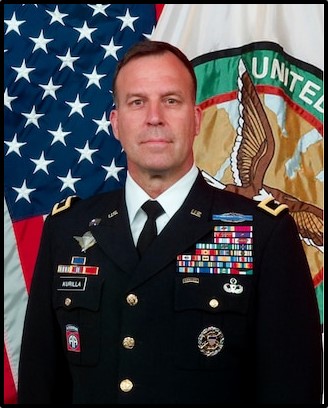
“Tehran’s primary power projection tools are ballistic missiles, UAVs, and expanding maritime capabilities. Iran’s missile inventory includes both medium-and short-range ballistic missiles capable of holding many regional targets at risk. Iranian surface-to-air missiles pose a significant threat to U.S. intelligence, surveillance, and reconnaissance assets operating in international airspace. Additionally, naval cruise missile technologies will strengthen Iran’s Anti-Access Area Denial efforts and increase Tehran’s ability to hold critical sea lines of communication at risk and threaten countries in the region with greater speed, precision, and lethality.
“Iran also leverages a network of proxy forces to advance its power base and build strategic depth. Iran repeatedly demonstrates a willingness to share advanced conventional weapons with Shia militant proxies and partners throughout the region.
“Iran’s negative influence in the region continues to grow and is incompatible with U.S. national interests, as well as those of our allies and partners. Iran views the U.S. as its greatest enduring threat and continues a multifaceted approach to remove U.S. forces from the region while avoiding escalation into major conflict. The risk of miscalculation and escalation remains high.
“Iran has a very capable offensive cyber capability. We see that playing out in the CENTCOM region right now. The areas that we can also work on is hardening our cyber defenses of our partners in the region.”
